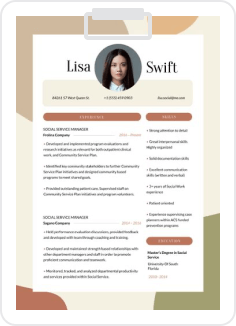How to fight imposter syndrome: 13 practical tips for small business owners
Have you ever sat at your desk and wondered why you’re doing what you’re doing… and if you’re even qualified for it? Who am I to say how things should be running, or why do I tell employees what to do when I don’t have my things together?
All these doubts might be typical of an entrepreneur struggling with imposter syndrome. You think you are not qualified or good enough to lead the life you do. You might also have thoughts about being unworthy of your achievements, experiencing anxiety, tiredness, and stress.
But worst of all is that nagging feeling deep inside that you’re not cut out for your own job.
What do we say to those doubts? Out the window.
You’re sitting where you are because you deserve it, and if you’re an entrepreneur — because you’re building something for yourself. That alone is worthy of admiration.
To soothe your soul a little, remember that millions of other entrepreneurs are Googling ‘imposter syndrome’ as you’re reading this 😉
To cut to the chase — we help you figure out whether you have imposter syndrome, as well as share practical tips on how to deal with it for a healthier, more fulfilling business life.
What is imposter syndrome?
Imposter syndrome is the constant feeling of being a fraud in what you’re doing. It’s often mixed with feelings of not being good enough, not being able to achieve success, and being more prone to fail. Those suffering from imposter syndrome often think of themselves as unworthy of their achievements.
Imposter syndrome is common in small business owners who constantly struggle to get their business up and running. Here’s what adds to it:
- Managing teams. As a business owner, you have to manage teams, pay salaries, and coordinate many little things yourself. This leads to increased stress in your daily life.
- Acting on low budgets. Being a small business owner often comes with a need to count every penny. Unfortunately, too much attention is paid to details here, and you sometimes get buried in budgets and documentation.
- Achieving key performance indicators. For instance, if you’ve planned to achieve certain sales KPIs this month and failed to do so, this can put you in a low mood.
- Having to keep up with competitors. Entrepreneurial life is full of struggles, and competing is perhaps one of the most tiring things.
So, imposter syndrome is real. What are the symptoms, and how can they be cured?
Common symptoms of imposter syndrome
We’ll tell you this — you are definitely not alone with your imposter syndrome. In fact, millions of people experience anxiety, self-doubt, and other symptoms as they fight imposter syndrome. So what is it characterized by?
- Thinking your success comes from external factors. When you achieve something, you tend to believe it’s due to external factors like help from others or mere luck.
- Failure to access your success realistically. People with imposter syndrome tend to say their success is “nothing” or “not enough” compared to others.
- Self-doubt. When you doubt yourself, you are less likely to take on risky projects, set higher goals, and be stuck doing all the same things forever.
- Overachieving. People with imposter syndrome are driven by the need to achieve more and more. This can result in sleepless nights, a lack of time to devote to one’s personal life and family. Remember how the song goes — “All work and no play makes Jack a dull boy.”
- Anxiety. We all know the constant feeling of having to check something once again, redo it, or re-read it. Imposter syndrome brings stress which, if not acted on promptly, can bring hardships to your overall mental health.
- Aiming for higher goals than a person can achieve. Here, you find yourself constantly setting aims and objectives that aren’t really attainable.
13 ways to conquer imposter syndrome as a small business owner
But hey, the good news is — imposter syndrome is a thing you can handle. In fact, there are some proven ways to conquer it and lead to a healthier business life.
Face your problem
Admitting that you actually have a problem is the first step to handling it. If your feelings of anxiety and other symptoms persist, perhaps it’s time to tell yourself: “Yes, I have imposter syndrome.” And start doing something about it.
Embrace your failures
There are no outstanding achievements without failure. In fact, failure is a powerful motivator and tool you can use to grow. As you fail, you get invaluable experience that will prevent you from failing again in the future. Failure is also what helps you become a mentor for others as you share your story with your peers.
Refocus
Imposter syndrome often arises from being too focused on success and needing to be better, faster, and stronger. This, of course, is a good thing for your overall motivation. However, it’s best to keep things balanced. Focus more on creating value for the people around you — and you’ll get your rewards.
Celebrate your achievements
Along with learning from your failures, celebrating your achievements is essential to overcoming imposter syndrome. Give yourself appraisal when you achieve something great every now and then. Remember: it’s not the achievement’s scale that matters, but the achievement itself.
Seek inspiration from others
Believe it or not, many famous people, like Lady Gaga or Sheryl Sandberg, suffer from imposter syndrome. Actors, writers, and business owners often say they’ve felt unworthy of their achievements. And they still go on — try to drive inspiration from their life paths.
Build on your strong sides
We all are unique. Try to list your hobbies, strengths, and important key points that make you — you. List what’s great about your business — we’re sure there are many inspirational points to admire. Once you’ve made a list, try to build your path on your strong sides, capitalizing on them.
Surround yourself with other small business owners
It’s a great idea to have a circle of peers with whom you can share your thoughts, troubles, and, most importantly, successes. Talk to others, discover their challenges, and ask questions on how they’re coping with their thoughts. Remember — even if you’re having a hard time with your imposter syndrome, you’re not alone and always have someone around to help.
Distinguish between your feelings and actual results
One day, you may feel stuck and anxious about your business progress. While we understand your feelings here, let’s take it to the facts. Get a piece of paper and list all the actual results you achieved as an entrepreneur today, this week, or this month. No judging — just pure facts. Then, ask yourself how you’re feeling about them. Repeat this process every once in a while to feel better.
Stop comparing yourself to others
Sometimes, you only see the success of other business people without knowing about what they go through daily. So, if you think someone is more successful than you, more prosperous, or more agile — remember that you don’t know this person as you know yourself. Everyone struggles with something, and it pays to compare yourself with yourself as you grow, not others.
Embrace appraisal from your clients and team
Next time you hear a big “Thank you!” from your client, try to note it down. Make it a good habit to note all the good words your clients and team say about your company. You can even make room on your website for good client reviews and come back to them every once in a while. Remember that others perceive you differently; their good words can be a powerful support tool.
Make meditation your daily routine
Meditation is a proven way to reduce anxiety, calm the mind, and accept how you’re feeling. Here, discipline is what makes things work. Try to devote at least 10-15 minutes daily to meditating — and you’ll see how your perspective on yourself changes. You can also try guided meditation apps as they provide special meditation tours to help entrepreneurs relieve stress and anxiety, and get in a better mood.
Allow yourself to rest
Rest is as essential as work. Once you’ve completed your tasks, allow yourself to have a good rest. For that, choose the things you like the most. This could be spending a day in nature, shopping, or simply having a good night’s sleep. Once you feel rewarded, you will have more energy to run your business further.
Try therapy sessions
Cognitive therapy is yet another powerful tool to help you overcome your imposter syndrome. Try finding a specialist and follow their recommendations on your situation.
Last but not least — love your imposter syndrome
Now, can you take a deep breath and embrace it? Yes, you might have imposter syndrome. But it would help if you weren’t being too hard on yourself trying to fight it. Instead, try to admire your every achievement and go on with it.
Imposter syndrome is not rare — many entrepreneurs are prone to it. Embrace it and think of it as part of your growth process. To conquer imposter syndrome, we recommend admitting to having it, not comparing yourself to others, and talking to your peers for relief. You can also try out meditation apps or go to therapy to deal with your syndrome with a mental health specialist. Finally, learn from your failures, celebrate your successes, and always keep going.




















